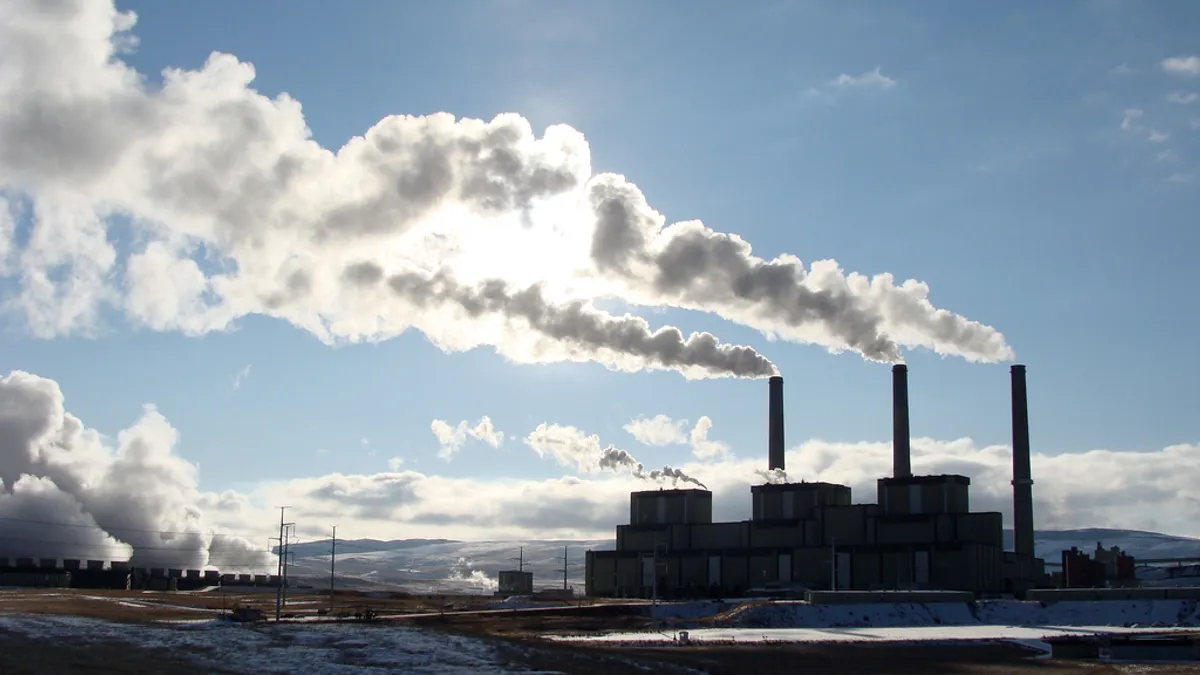Dive Brief:
- States involved in the Northeast's Regional Greenhouse Gas Initiative are considering tightening the emissions cap under the program, potentially raising raising costs out to 2031, according to modeling scenarios in a recent presentation.
- A 2.5% annual cap reduction could send prices close to $10/ton for CO2, while a 5% reduction would place prices close to $30/ton, assuming the Clean Power Plan is in place and without the use of the market's cost containment reserve.
- SNL Energy reports CO2 allowances in the emissions compact's over-the-counter market are currently less than $6/ton for December 2016.
Dive Insight:
A draft proposal for the RGGI program, presented last week as part of a review of the regional emissions strategy, envisions lower emissions caps as the Clean Power Plan is implemented, with allowances potentially rising several times over under the most extreme scenarios.
The presentation considers one model that includes a 5% reduction in the emissions cap and changes to the cost containment reserve, including a possible two-tiered structure, where allowances reach $25/ton in 2030.
Peter Shattuck, clean energy initiative director at the Acadia Center, said while electrical prices in RGGI could rise as much as $6, the higher emissions reductions is a good tradeoff, E&E Publishing reports.
Some changes have previously been considered to the program, in order to accommodate reductions planned by the Clean Power Plan. Last year Acadia Center issued a report finding the emissions cap would need to be extended from 2020 through at least 2030. The Northeast regional effort has seen a 45% reduction in greenhouse gas emissions, $630 million in energy efficiency funding, and $2.3 billion in consumer savings.
The June 17 presentation considers projections from two CPP Reference Cases and five scenarios where RGGI lowers the emissions cap.
RGGI said the new CPP Reference Case "places mass-based goals in non-RGGI states for existing sources and the new sources complement," while the existing reference case places CPP mass-based goals in non-RGGI states for existing sources and a proposed EPA leakage set-aside.
RGGI's new modeling scenarios were completed by ICF International.















